Every year, our TV Team complies a list of our favorite and least favorite TV characters. (See: 2021, 2020, 2019, 2018, 2017, 2016.) This year, we’re trying something a little different! This year, we’re not writing about our least favorites because there’s so many favorites to choose from! As always, let me remind you: this is not a list of the categorically BEST LGBTQ+ TV characters. It’s simply our TV Team’s own personal favorites of 2022. We hope you’ll share yours in the comments!
Gracie, A League of Their Own

Shelli Nicole, Writer: I shall tell you that I love Gracie more than any other queer character on TV this year. I love vintage shit, but it so rare that I can see any semblance of myself in it. I loved Marvelous Mrs. Maisel and was so hopeful I’d see a Shelli — but I didn’t. Same with all the other vintage fueled shows that we all tune into — Mad Men, Fargo — but I didn’t see Shelli. When Gracie walked onto the screen all I wanted to do was scream. There on my screen was this funny, sweet, beautiful, thick, brown-skinned, queer woman who I saw myself in. I just wanted more of her on the screen and they gave it to me. They then gave her this solid, real, affirming love and made her this whole character and I just wanted more and more. So shout out to Gracie and ALOTO for finally letting me see myself in the past ‘cos that just gives me mad hope for pop culture in the future.
Mercedes, P-Valley

Drew Burnett Gregory, Writer: Literally my only note for P-Valley’s stellar first season was to have more queer women. Never could I have dreamed that the second season would fulfill that wish with my favorite character! There’s a reason people come far and wide for the Mercedes Experience. She’s the best dancer and, alongside Uncle Clifford, she’s who makes The Pynk.
This season, her failed retirement and injured arm force her to confront her life and her future. She gives in to longtime customer Coach’s offer for “sponsorship” and ends up in an entanglement with Coach’s wife, Farrah. And if this wasn’t enough she also spends the season reconnecting with her daughter — and continuing to face her mother.
Brandee Evans is incredible as Mercedes. I’m often drawn to characters who feel like they have to perform strength but this only works when the actor has a beating heart of emotion underneath. Evans makes Mercedes’ desires our desires, her failures our failures, her triumphs our triumphs. It’s a standout performance on the best show on TV.
Quinni, Heartbreak High
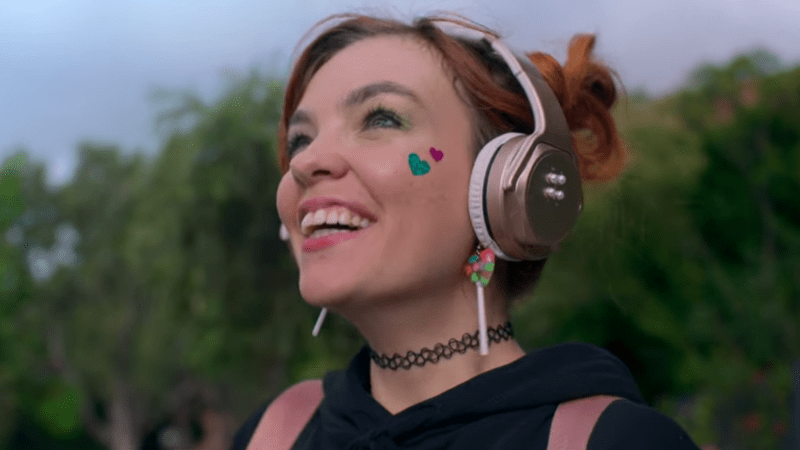
Valerie Anne, Writer: I wasn’t sure what to expect going into Heartbreak High, but I ended up finding all these Australian teens very endearing. I especially loved Quinni, an autistic queer girl with a non-binary best friend. She is so sweet and friendly. She’s a great friend and she’s a passionate nerd and even though I’m not autistic, I related heavily to a lot of her anxieties and thought it was so sweet when Darren knew how to look out for her and support her. I shared her excitement when the girl she liked said she liked her back, and I felt rage when I saw said girl start to treat her badly. Her sadness made my heart weep, her happy stims brought me joy. Quinni felt like a brand new character, and also a long overdue one, and I am glad she exists.
Shelly, Minx
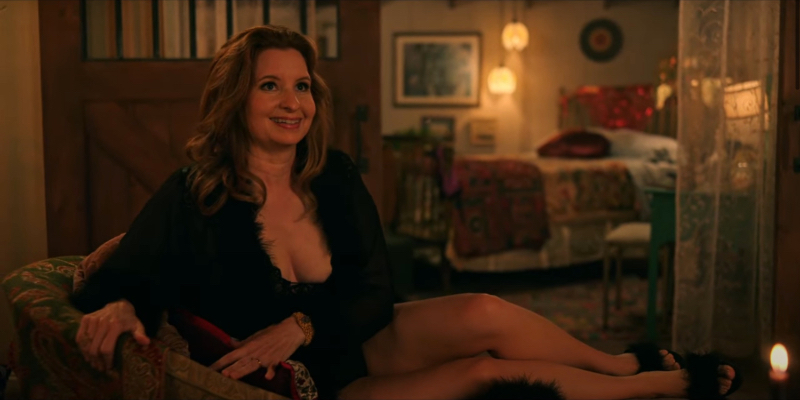
Drew Burnett Gregory, Writer: This 1970s period piece about a feminist who ends up creating the first porn magazine for women is a delightful romp. Sure, its politics might be a bit trapped in the decade it takes place, but it pushes just enough to let its pleasures be enjoyed.
The charming cast is one of the show’s best features and with no one is that truer than Lennon Parham. She plays Shelly, the protagonist’s married sister, and it’s a real testament to Parham that she takes this archetype and makes her human. She’s not just the buttoned up housewife who has a queer sexual awakening — she’s someone who was always this free and simply didn’t have an outlet to place that freedom. She’s more comfortable than her feminist sister when it comes to sexuality — in general and her own.
Her hookup with model then manager Bambi happens toward the end of the season but hopefully in season two we’ll see a lot more of these two together and a lot more of Shelly.
Max Chapman, A League of Their Own
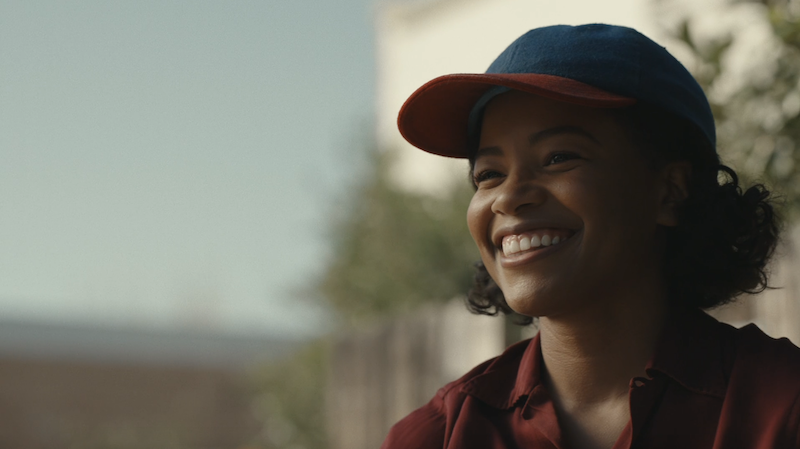
Nic, Writer: A League of Their Own rocked my world this year, and a huge part of that was thanks to Max Chapman. She is everything to me. You know that thing where you’re watching a show, but you’re also kind of uncomfortable because it almost feels like you’re intruding on private moments you weren’t meant to see? That’s what it was like for me watching Max, because everything from her joy to her pain to her fear to her vulnerability felt so…real. I laughed with her when she joked around with Clance. I felt that same tightness in her chest when she overheard her parents talking about her sexuality. I was proud when she made that suit her own and walked into Bertie’s party and into a whole new side of herself. And the queer love Max got to see through Gracie and Bertie, and experience with Esther? I couldn’t have hoped for more. Honestly, Max’s mere existence is one of my favorite things about A League of Their Own, because while the film focused exclusively on the Peaches, there were Black women at the time who had the same dream; Max is those women and I’m so grateful for her.
Kayla Kumari Upadhyaya, Managing Editor: Among all the things A League of Their Own does right in its first season, going way beyond nostalgia is its finest achievement. Nostalgia can be a trap, and A League of Their Own doesn’t fall into it, instead offering up new characters, new stories, and new themes for its world to explore that the original movie doesn’t even touch. Max Chapman exemplifies this, opening up A League of Their Own’s world and bifurcating its story into two equally immersive and complex threads that sometimes touch but don’t always have to because they also stand so strongly on their own. Max’s arc across the first season covers queer love, fraught and touching familial relationships, and bone-deep friendships. So much of the emotional core of the show belongs to Max.
Carmen Phillips, Editor-in-Chief: It’s Max’s ambition for me. Ambition is often thought of as a cold emotion, and I don’t know that many people would bring it to top of mind to describe anything related to A League of Their Own, a show best defined by its warmth. But Max Chapman? She’s ambitious. She is dreaming a dream that has not even happened yet, that may not even be possible, and she is so single-focused on reaching into the suns and stars and dragging the moon itself back down to the baseball diamond if it means that she gets to pitch, that’s she’s not even a good friend or niece all of the time. In another person’s hands, Max as written could easily be unlikeable, instead she walks away with the whole show — and that is the power of Chanté Adams.
Max’s ambition could have swallowed her whole, but it forced her to confront the thing she kept burying inside of her instead. If Max had not finally confronted her queerness, tried to answer the puzzle that was eating at her, she wouldn’t have landed at Bert’s door. And several internalized gay panics (and a few hurtful moments) later, if Max hadn’t come to trust Bert and find her home in a queer family she never knew she had, she wouldn’t have been at the party to meet Esther. If she hadn’t met Esther, she wouldn’t have ended up pitching that factory game. She wouldn’t have ended up in the Negro Leagues, living her dream.
I love that Max’s ambition brought her to herself, that it brought her to her family, and that through them she ended up exactly where she was meant to be all along. It’s better than any romance, a fairy tale worth believing in.
Heather Hogan, Senior Editor: I think Max Chapman might be my favorite lesbian TV character ever, actually. I obviously don’t have anything to add to the representation conversation that Carmen didn’t write gloriously in our A League of Their Own recaps. What I’ll talk about is the incandescent joy of watching Max’s story unfold with such care, thoughtfulness, and precision over the course of the first season. It’s a story that has literally never been told on TV or in film, and to make it land, to make it really count, Max’s entire world had to be full and believable. Her relationship with Clance, first and foremost. Her relationship with her mom and dad, and then with her Uncle Bert and Aunt Gracie. And also her relationship to her sexuality, to her gender presentation, to her hometown, to baseball.
Chanté Adams brought all of that to life, with a smile as bright as Christmas morning. I laughed with her, I cried with her, I came out of my seat and charged the TV — right alongside Clance — cheering for her. I love that Max isn’t perfect. That she’s allowed to make some selfish decisions and learn from them, that she’s allowed to get caught up completely in her dream and realize how that affects the people she loves too, that she’s allowed to still be figuring out how she wants to dress and wear her hair, who she wants to sleep with and love. And it’s so rare and wonderful that we get just a hint of all the factors that go into all of those decisions. What makes her feel like herself, what keeps her safe, what brings her to life, what counts as home. I want Max to have everything. I want Max to have the whole world.
Greta Gill, A League of Their Own
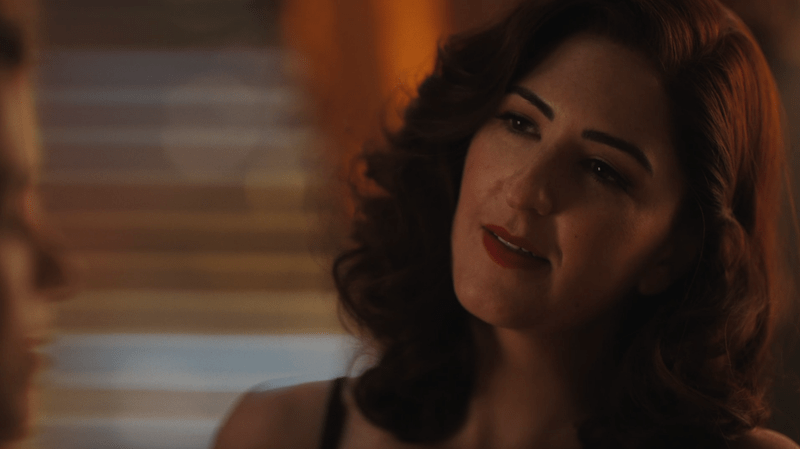
Nic, Writer: Look, all I’m saying is that D’Arcy Carden made a DECISION to say “Do you want me to stop?” the way that she did. The lewks and the Looks. The swagger. The humor. The rare moments of vulnerability. I LOVE HER, YOUR HONOR. – Nic, Writer
Luz, The Owl House
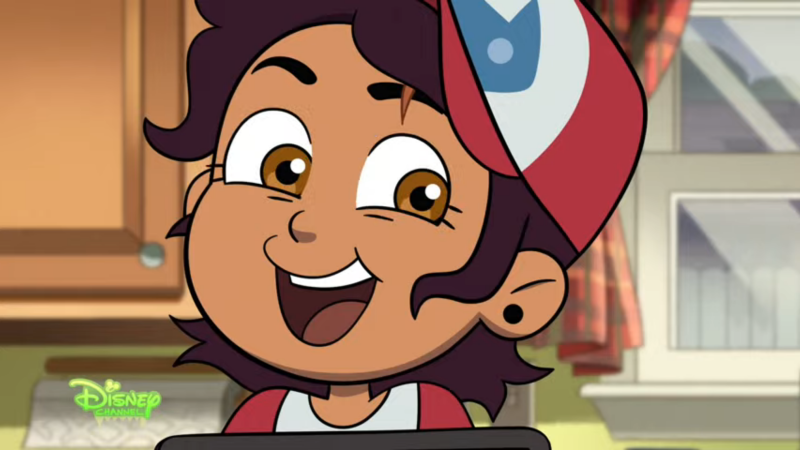
Valerie Anne: From the very beginning, The Owl House has been a nonstop source of joy for me. It combines all the things I love: misfit stories, magic, training montages, found family feels, and, of course, queerness! Luz and Amity go from enemies to crushes to girlfriends over the course of the seasons and goodness gracious it’s so cute to watch. But Luz herself has been such a delight to watch. She’s optimistic and charismatic and open-minded. She’s a problem-solver and just an all-around joy. But she’s not perfect. She makes mistakes. Like, a lot of mistakes. But she tries her best to learn from them. Her number one goal is to help the people she loves, and I love that about her.
Heather: I know all I do is go on and on about how cartoons are the best queer storytelling happening on TV these days, but it’s only because it’s true! The Owl House proved it once again in 2022 by telling the kind of LGBTQ stories no one else is touching with a ten foot pole. I’m talking about a bisexual lead, a lesbian girlfriend, a queer shape-shifting sister and her nonbinary love interest, a nonbinary old flame rekindled, a pansexual kinda mom, and the greatest most supportive best ally mom in the entire world. But it’s not just the quantity of characters. The Owl House is digging deep in its final episodes to shine a light in the darkness for queer and trans kids who need it desperately right now, and Luz is the glow.
She’s a bisexual Latina nerd who felt alone and unmoored until she filled in her found family. She’s someone who has experienced intense grief that will last a lifetime, and experiences all the depression that goes along with such huge loss. Trauma is always lurking just around the corner in Luz’s world. But even in her darkest moments — and they are dark-dark — she fights for hope, and she believes in the love of people around her even when she doesn’t believe in herself. Luz is my kind of hero. A deeply sad badass who’s also somehow full of optimism. Plus! This season! She finally got to kiss the girl, after climbing her tower to rescue her! My Prince Charming!
Robin, Stranger Things
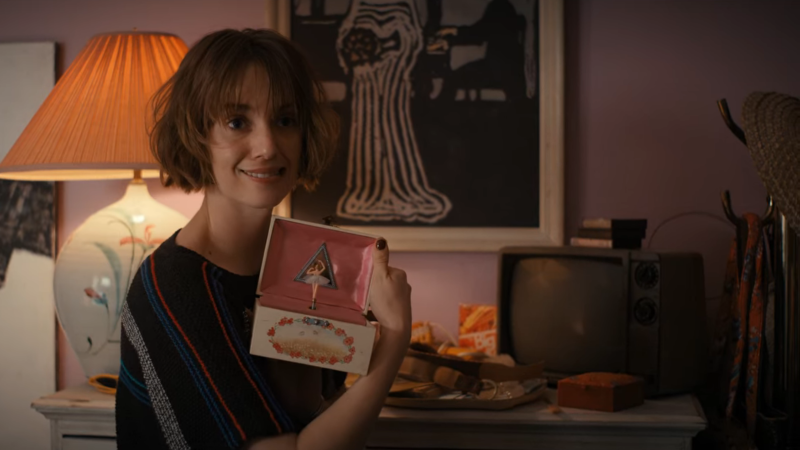
Valerie Anne: Maya Hawke has me completely under her spell. I find her effortlessly charming no matter what character she plays, but Robin Buckley is especially delightful. The way she was introduced as just constantly making fun of Steve was perfect, and the way she accidentally got entangled with the main plot by way of being good at puzzles (and Russian) was so fun. And then she just…kept showing up. First for her buddy Steve, and then for the rest of the crew as she got to know them. Shipping aside (and believe me, I do ship), Robin’s scenes with Nancy were some of my favorites of this most recent season, and I’d tip off a canoe and into the Upside Down after either of them any day, without hesitation.
Elora and Willie Jack, Reservation Dogs
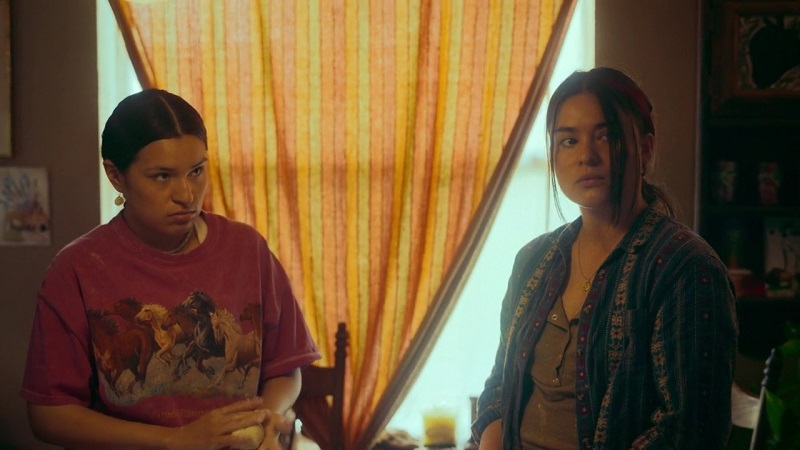
Natalie, Writer: “Y’all ever feel like we just went from being kids to women overnight?” Bear’s mom, Rita, laments after a rare night of relaxation at the IHS conference.
Her fellow Auntie nods in agreement and adds, “And no one even asked us.”
No one ever asked Willie Jack or Elora if they wanted to be women. They were kids, they were happy. They hung out with their crew. They tossed spitballs at each other in class. They had dreams of being wizards. But then Daniel died and their entire world shifted. They went from being kids to women overnight and no one even asked them.
“It’s like everyone’s walking around in the sunshine and we’re just in the darkness,” Willie Jack admits in “Offering.”
In the first season of Reservation Dogs asked Elora and Willie Jack to carry much of the emotional weight following their friend’s death. Bear and Cheese grieve the loss too but for Elora and Willie Jack, the pain lingers close to the surface, inflamed by any contact. They’d all lost a friend but, as Cheese notes in his impromptu eulogy, Willie Jack lost a brother and Elora lost her hope. The grief persists in the show’s sophomore season.
Paulina Alexis remains a revelation as Wilhelmina “Willie Jack” Jacqueline. Her task is a tough one: because while she’s grappling with this grief, Willie Jack’s also the source of so much of Reservation Dogs‘ humor. Her dry wit offers a respite from the heaviness of the grief. She moves effortlessly from the humor of a run-in with “an old hippie dude that’s done a lot of acid” to one of the most affecting scenes of the season when she prays to the spirits.
Devery Jacobs delivers too, not just in front of the camera but behind it. As Elora, she tries to escape to California — to outrun the ghosts that are haunting her — but even that trip proves traumatic and she is compelled to return once she finds out her grandmother is dying. It feels like too much for one person to bear but Elora bends but never breaks. As Kawennáhere Devery Jacobs, she pens “Mabel,” which gives Elora space to contemplate her future and to consider a new way to deal with her grief. The script and the performance are as good as anything on television this year.
Hélène, Killing Eve
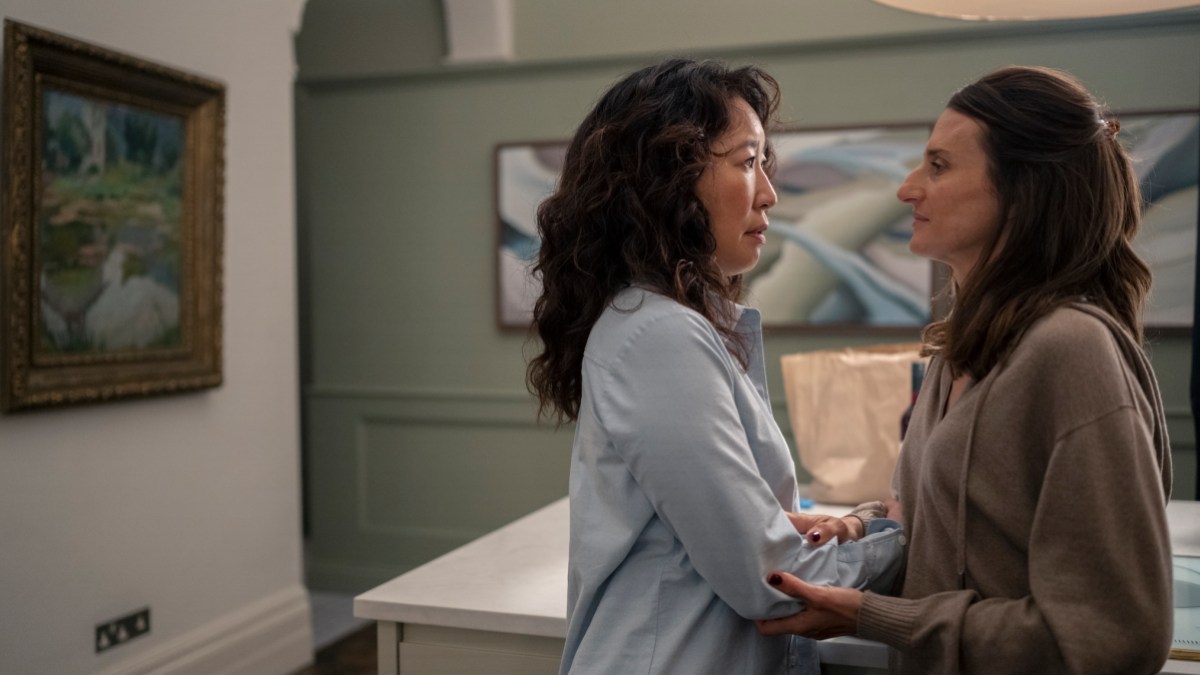
Kayla: What can I say; I am who I am. And who I am is a person with a deep appreciation for mean moms. Or, in this case, killer moms. Since I couldn’t choose Adult Shauna from Yellowjackets because she “isn’t” “canonically queer” I GUESS, I am going with the minor, mysterious, arresting character Hélène, who is as hot as she is scary. We may not have spent very much time with her, but I’ll never forget it.
Lupe García, A League of Their Own
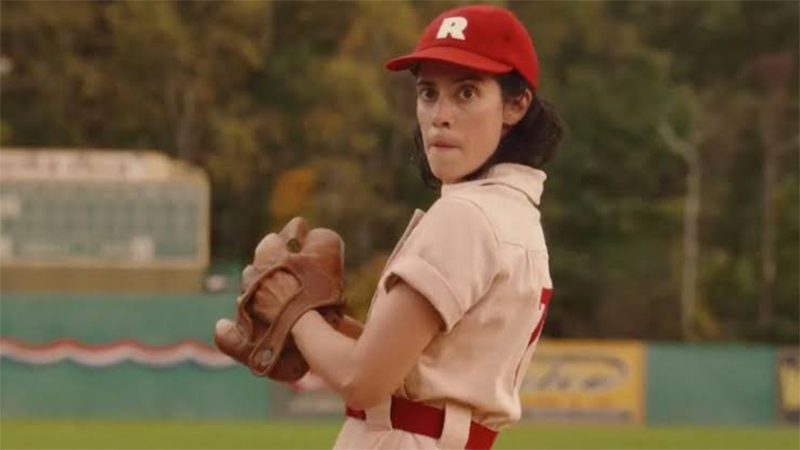
Riese: I love everything Roberta Colindrez has ever done and will ever do — but this character specifically really got me in the heart. Colindrez is such a deft performer, and she portrayed with nuance a woman tugged in myriad directions, fighting to stay true to herself and be seen for her unique skills and talents while also battling expectations and sterotypes around race and femininity that threaten her ability to succeed in 1940s America. Her friendship with Jess was probably my favorite relationship on the show, and that scene in the bar with Carson talking about their inter-league hookups is like — wow! I love television!
Ryan Wilder, Batwoman
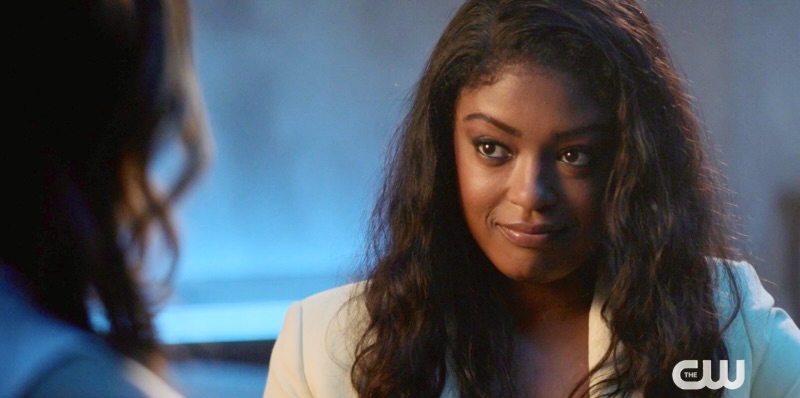
Carmen: I’m still not prepared to say goodbye to Ryan Wilder. Batwoman was cancelled over six months ago, and really it just comes down to that. We should not have had to say goodbye to Ryan, so soon. As the first Black lesbian superhero to lead her own show, Javicia Leslie captured lightning in the bottle. No, not enough. She was the entire storm. She was the universe, tilted on the axis of her megawatt smile and inescapable charm. As Ryan, Leslie carried so much on her back —expectations of a fandom that eventually shed its racist skin to become a beacon and home to Black queer nerds; action sequences that actors twice her size and muscle mass would balk at; becoming an example of leadership among her cast, all while living alone during a pandemic thousands of miles away from home. And that doesn’t begin to discuss where I believe she shined brightest, as a romantic lead as one half of one of the only handful of Black lesbian couples to lead their own show, and the first to do so on network television. She did all of that for us.
If this is my goodbye (for now) to Ryan Wilder, I also want to say this: of all the things that Batwoman got right in its second and third seasons, dedicating its final run to expanding Ryan’s world — including a her birth mother (played by the legendary Robin Givens) and her brother, was an exquisite choice. It’s rare that a show recognizes that to really center itself on a Black character also requires building out a Black ecosystem for them to thrive. Slowly but steadily Batwoman became the Blackest superhero show on television this side of Black Lightning and providing those layers of nuance allowed Ryan to be sweet, protective, at times goofy, emotional, and take the audience along on the ride because she was the hero of her own community and her own story, first and foremost.
Sometimes I think we flew too close to the sun. I still have the Batwoman Funko Pop on my shelf. I don’t know if I’ll ever be ready to let go.
Alice, The L Word: Generation Q
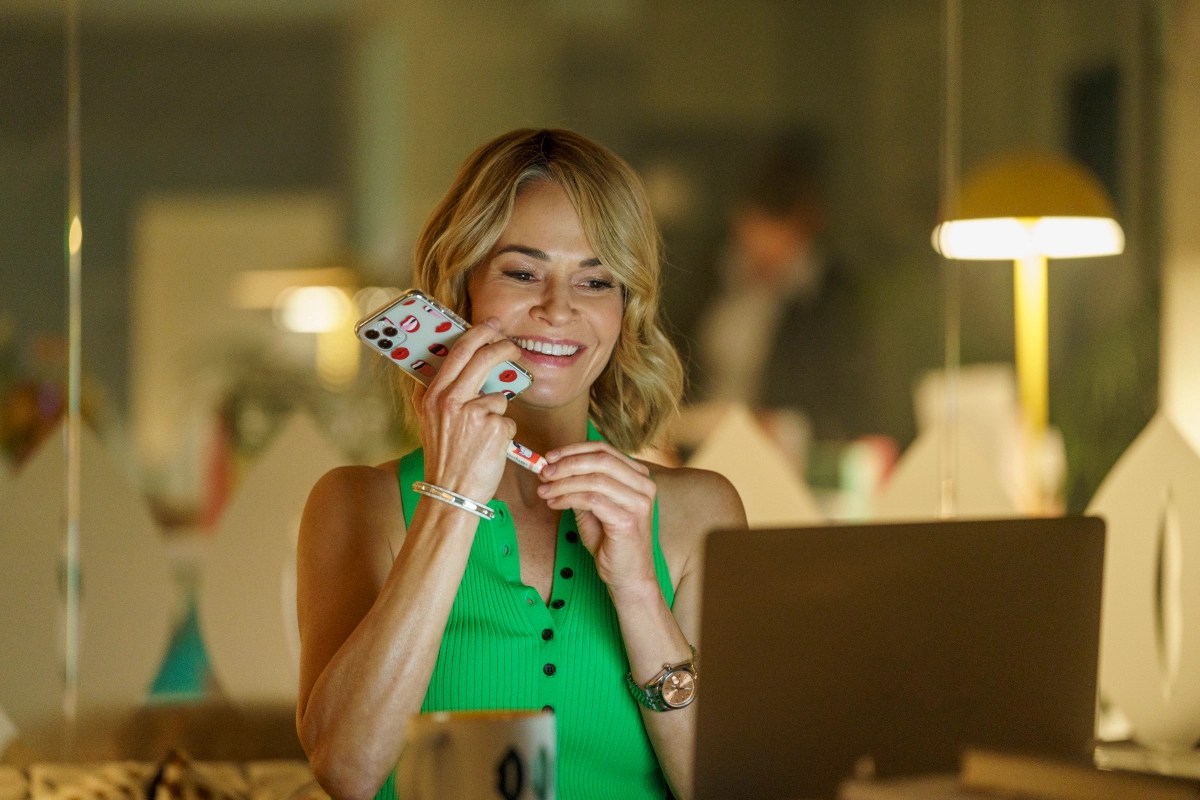
Riese: I know everybody’s bummed about Bette Porter’s departure from The L Word: Generation Q universe, but one of the results of this cast shuffle is that now Leisha Hailey — a queer actress who’s been out since the jump — gets top billing. Alice’s growth from the original series through Generation Q feels relatively authentic, especially as we start Season Three with Alice single again, on another haphazard and obstacle-ridden quest for love or something like it, with her still open to unconventional possibilities.In a roundtable we did a few years back about Lisa the Male Lesbian from the original series’ first season, Grace Lavery described Alice as “gentle and curious, excited as she often is to experience new genres, new ways of being and representing, but always defensive too, never quite allowing anything to land.” I think what we’re seeing in the new series is her willingness to let things land, or to walk away with clarity when they don’t. In a franchise where growth or earned change is hard to come by and ret-cons are more popular than revisions, Alice continues to delight and evolve.
Taissa Turner, Yellowjackets
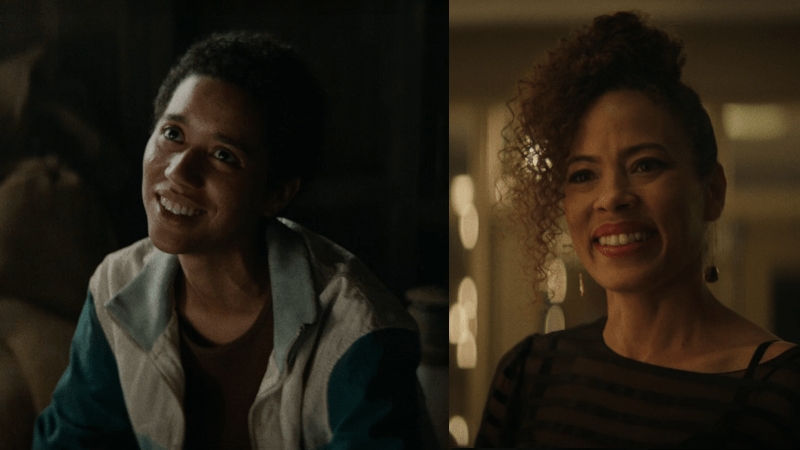
Carmen: (Specifically Adult Taissa Turner) Famously, I am not a horror girlie. That is the biggest compliment to Tawny Cypress’ intensely focused performance as adult Taissa Turner in the first season of Yellowjackets — I am not a horror girlie, and yet I sat through all ten hours of Yellowjackets in a single weekend, through ghost stories and wolf maullings and the ever-present blanketed threat of teenage cannibalism, just to watch and see if she’d finally crack.
I mean no disrespect to Jasmin Savoy Brown’s performance as teen Taissa trapped in the woods, she’s become a fan favorite for good reason — her performance of brutal overachiever Tai who slowly realizes that she cannot tight fist her way into control of this maddening scenario is as epic as it is effortlessly queer and addictive. But Cypress has the unenviable job of recreating the shallow veneer of Tai being back in charge of her own life in the after, only to lose it all, all over again. It’s a knife’s edge pressed against flesh, if you blink you’ll miss when it finally pierces what’s beneath.
I, for one, most certainly did not blink.
Valerie Anne: Teen Taissa Turner is the hot, bossy girl I would have been terrified of and in love with in high school. Adult Taissa Turner is the hot, bossy woman I would be terrified of and in love with if I knew her in real life. I love that two queer actors portray her; Jasmin Savoy Brown and Tawny Cypress bring unique perspectives to these two stages of Taissa’s life while also having undeniable similarities. Yellowjackets feels like two shows in one sometimes so sometimes the two Taissas feel like two different characters and I love them both with a fiery passion.
Anne Lister, Gentleman Jack
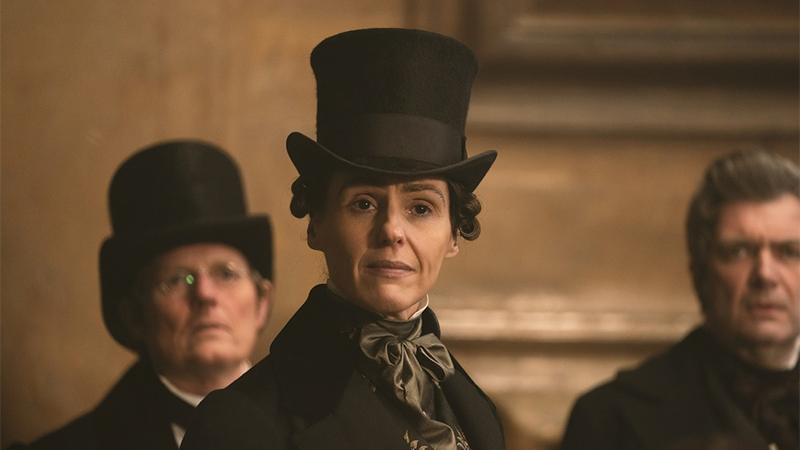
Heather: You know what I love most about Suranne Jones’ Anne Lister? She is the WORST so much of the time! Gentleman Jack would have been unwatchable if the show tried to canonize Anne as some kind of modern day saint living in a coal mining world. She was not that. She was brave as all hell, that’s for sure, living her butchy gay life right out loud in the mid-1800s. And my lord, yes, the homophobia and sexism she constantly ran up against but that she never let slow her down. And her willingness to get her heart broken over and over and over again looking for true love.
That stuff is seriously heroic! But she was also the kind of person who was digging coal pits and sending kids down to work in them 24 hours a day, relentless and reckless in her pursuit of wealth, a firm believer in upholding the conservative systems of power that most of us are still working hard to dismantle today. How amazing is it to watch a lesbian TV character that you both look up to and also know you would fist fight in the class war? We never get to see that kind of nuance with queer women on TV. I’ll be bummed if we don’t get a third season of the series, but also I feel lucky beyond belief that this version of Anne Lister ever even existed at all. I’m not sure we’ll ever see anyone like her on TV again.
Uncle Clifford, P-Valley
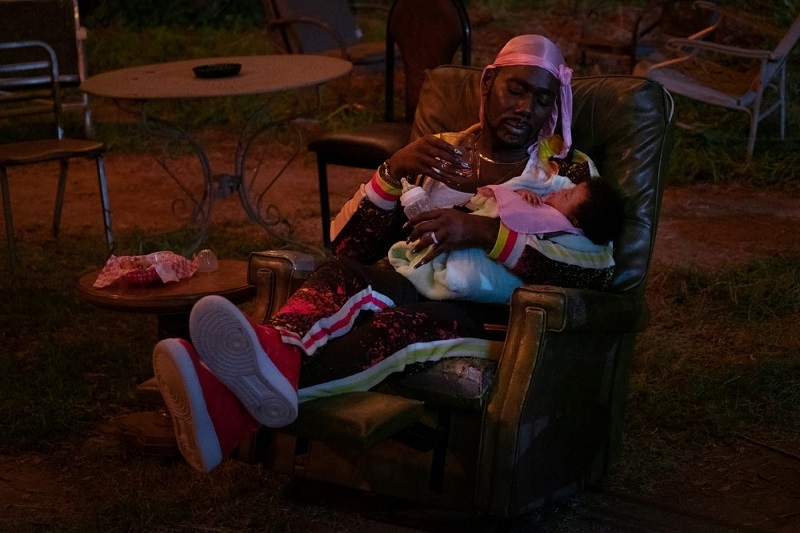
Natalie: In “Demethrius,” we see the fallout from the shooting of an unarmed black man by police through the eyes of our protagonists. We watch them react as people across Mississippi are galvanized into action. As Granmuva Ernestine watches it all unfold from a stool at the Pynk, she entreats Uncle Clifford to join the protests. But as much as she might agree with the protesters and as “big as [her] mouth is,” Uncle Clifford stands firm, responding, “Granmuva, errybody can’t protest. Some niggas just need to keep the strip clubs open.”
It’s a flip moment but hearkens back to the thing that makes Uncle Clifford such a compelling character: she is someone who, unquestionably, knows who she is. Even as she brushes against a world that’s never been fully prepared for her, she claims the space that is her birthright. It’s a confidence that her mother instilled in her early, handing her a Gucci pocketbook at three and daring anyone else to take issue with it. Uncle Clifford is noteworthy both for what she represents — one of the most prominent non-binary characters to exist on television — and what she inspires. Every moment I spent with Uncle Clifford this season was a reminder not to dim my own light and a challenge to live as my most authentic self, detractors be damned.


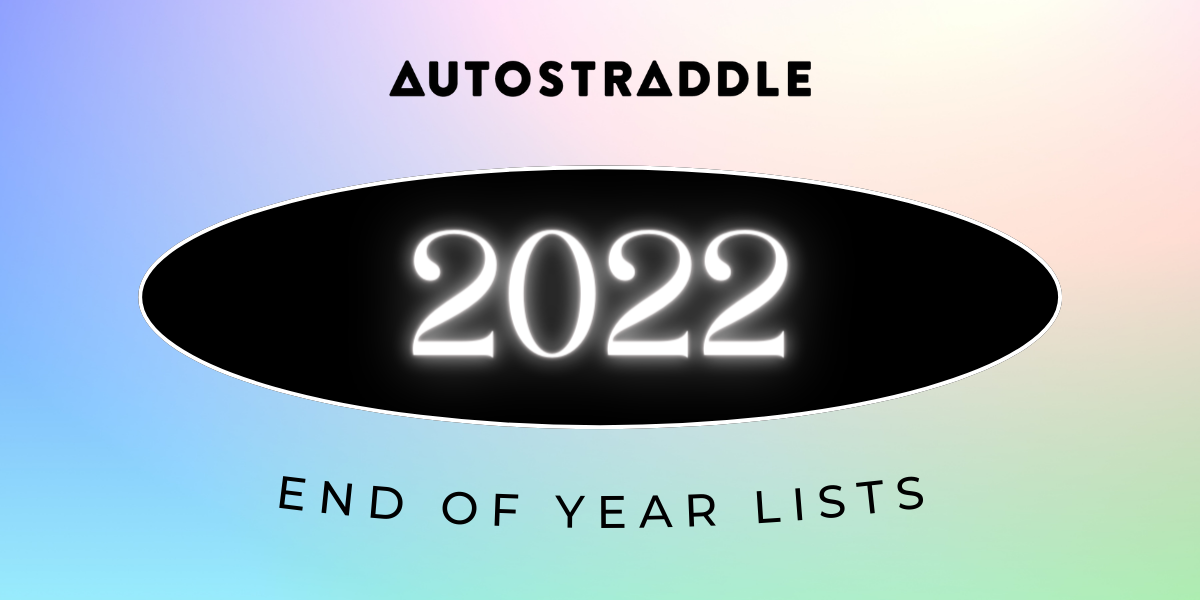

Wow we have good taste
Uhm, I think you spelled Kate Whistler (NCISHawaii} wrong.
Avatrice gave us absolutely everything in season 2 of Warrior Nun this year! I’m still blown away by the confident, nuanced writing of their beautiful slow burn romance.
I love these characters and I love y’all’s writing about them!
– Ava Silva (Warrior Nun)
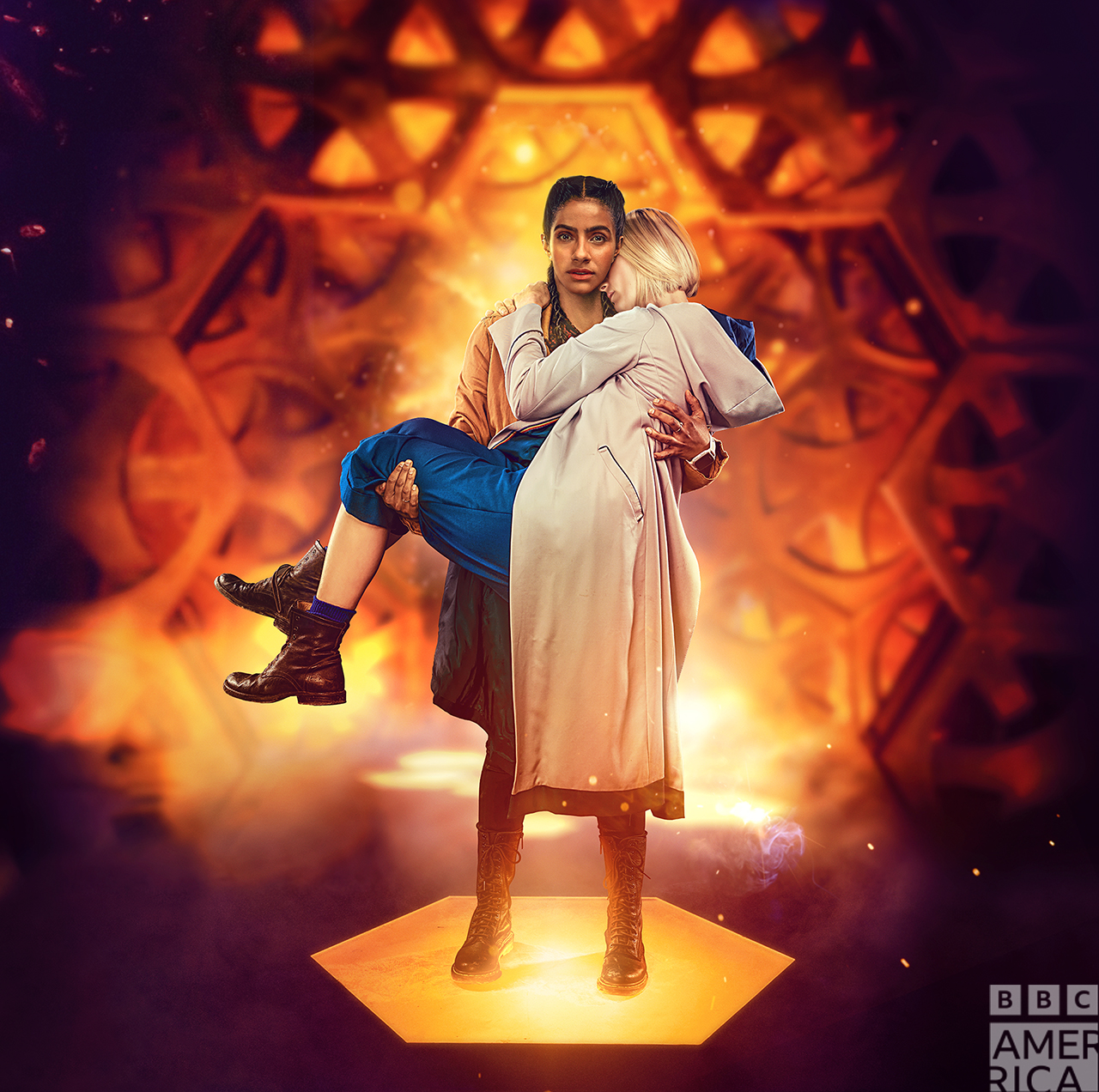
– Sister Beatrice (Warrior Nun)
– Lupe Garcia (A League of Their Own)
– Robin Buckley (Stranger Things)
– Yasmin Khan (Doctor Who): The way that Mandip Gill can infuse so much emotion into Yasmin’s interactions. A sentence, a pause, a simple look. All of them carry so much weight when Yaz is interacting with the Doctor. And in the end, it was Yaz that carried the Doctor, not the other way around.
kristana whenever someone lists characters + shows and I see it in the comment sidebar, I always assume it’s an update to the dead lesbians on tv list and i was ready to FIGHT SOMEONE hahaha
Darcy, I notice that I didn’t see your list.
I love all of the queer characters in A League of Their Own (and several of the cishet ones). That show was so much more than I expected and it has so much heart.
I adore how many different ALOTO characters made the list and also reading about why you all love them!
– Mac (Paper Girls)
– KJ (Paper Girls)
– Tegan, Sara and Maya (High School)
– Lupe (A League of Their Own)
– Jess (A League of Their Own)
Uncle Bertie (A League of Their Own)!
+1
wow we have very similar taste!!! those are all characters i thought about writing about or did write about
I guess we are both fond of cool butches/masc people with a heart of gold – to break something complex down into not sufficiently complex
Obviously everyone from ALOTO, but also a little honorable mention to Bad Buddy’s Ink & Pa. Can’t wait to see Milk & Love get their chance as leads in 23.5 next year.
Such a good list!
God ALOTO has so many good ones to choose from and also I’m still screaming about the background characters. The historic butches really got me, and I want so much more screen time for Jess and Lupe in season 2! But also Bertie!! Jo!! Fucking BEVERLEY. I’d watch 10 hours of them just sitting in the bar talking about being queer.
nice.
But I guess including Maya from ST is a way to bring hits to this site. Cause she is far away from being one of the best or even well explored within her show
The perfectionist, contained, and ass-kicking warrior, Sister Beatrice.
And really the whole cast of ALOTO.
I just love everyone from ALOTO. Jo. Greta. Max. Bev. Jess. Lupe. Shaw. Bertie. S. Gracie. I just watched it again today for like the 15th time. I just adore that show so much and everyone on it. It’s just beautiful.
I am confused why Elora and Willie Jack clubbed together? I feel they are both developed characters that stand on their own.